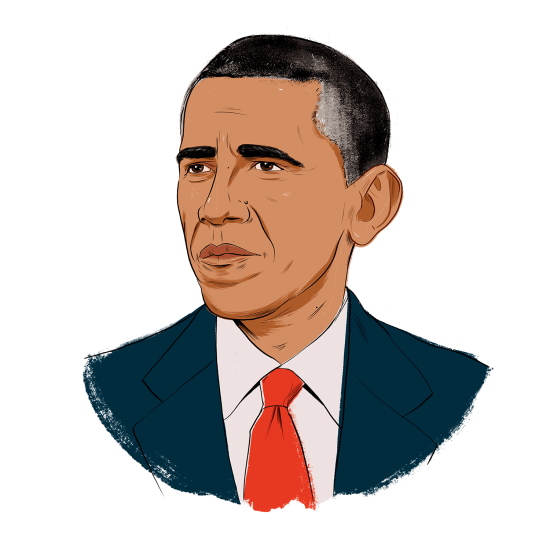
'Policy proves we can make a difference'
One of the reasons I ran for President was because, for decades, the economy had been changing, and Washington hadn’t done enough to make it work for working Americans. Everywhere I went, it seemed like our economy’s basic bargain—if you work hard, you can get ahead—had frayed.
The good news is, policy proves we can make a difference. In 2015, the typical household saw its income rise by $2,800. That’s a 5% gain—the fastest rate on record. And 3.5 million Americans climbed out of poverty—the most in one year since the 1960s. Changes to tax policy under my Administration helped ensure the 1% pay a fairer share. But they also increased the share of income going to everyone else by more than the tax changes of any other Administration since at least 1960. Along with the coverage provisions of the Affordable Care Act, these tax changes will boost incomes next year for families in the bottom one-fifth by the equivalent of over a decade of average income gains. But it will take more than eight years to reverse trends going back decades.
[time-brightcove not-tgx=”true”]
Here’s the problem with inequality: As the gap between the wealthy and everyone else widens, so does the distance between rungs on the ladder. The consequences of starting at the bottom become more serious. Research shows that in countries with more inequality, growth is more fragile and recessions are more frequent, potentially because the middle class has less to spend. When people feel like the game is rigged, distrust grows. But we are not powerless to push back on inequality—as long as we make the right choices and set the right priorities.
First, we have to accelerate economic growth. Investing more in infrastructure, reforming our business tax system and expanding trade while ensuring a level playing field would boost demand, productivity and competitiveness. Second, we must ensure that every American can share in that growth. That means strengthening collective bargaining, raising the minimum wage, securing benefits like paid leave and giving more tax cuts to working families—and paying for them by asking the wealthy to pay their fair share. With increasing corporate consolidation, it also means doing more to encourage true competition in the marketplace and offering more choices to consumers. Third, we must prepare every child and worker with education that lasts a lifetime—from pre-K to affordable higher education to job-driven training.
Eight years after the worst economic crisis of our lifetimes, more Americans are working and more have health insurance; incomes are rising, and poverty is falling. Almost every economic trend line is heading in the right direction. The choices we make now will determine whether or not that continues. And I’m as optimistic as ever that our best days are ahead.
Obama is the 44th President of the United States
TIME Ideas hosts the world's leading voices, providing commentary on events in news, society, and culture. We welcome outside contributions. Opinions expressed do not necessarily reflect the views of TIME editors.